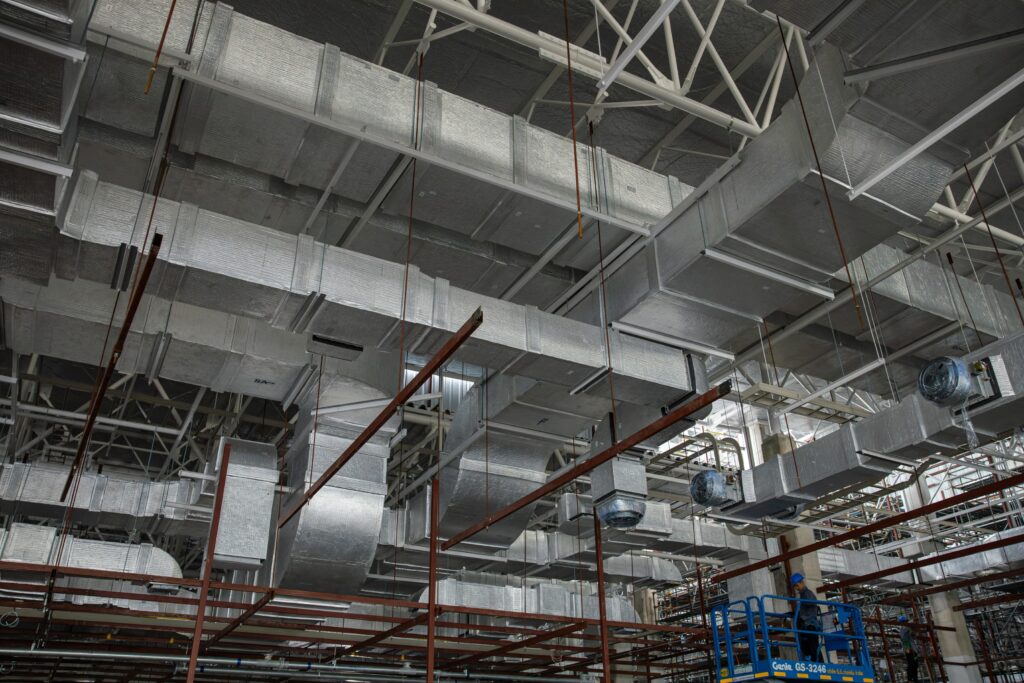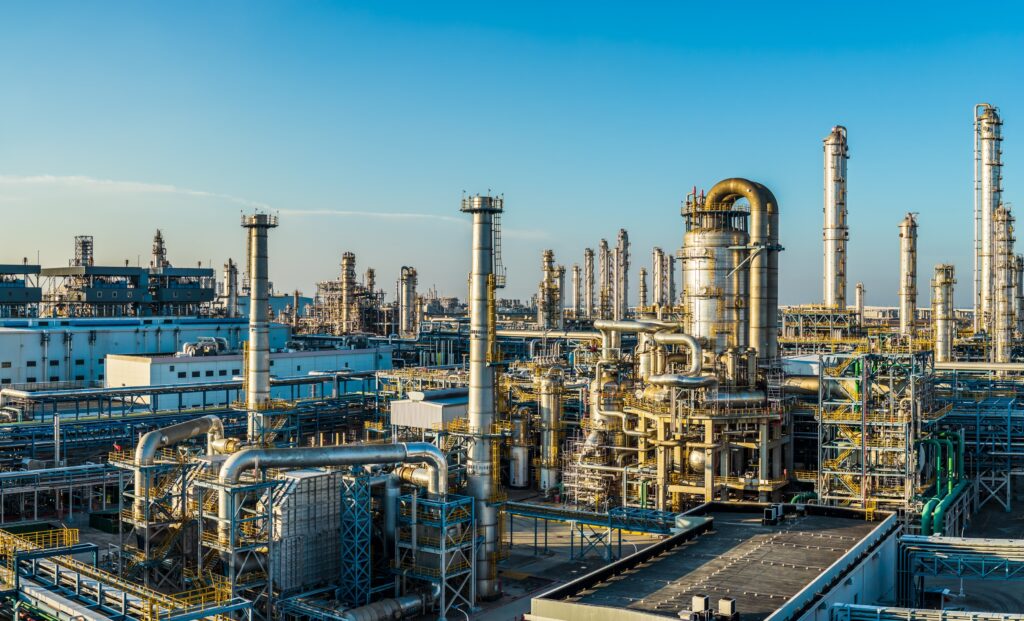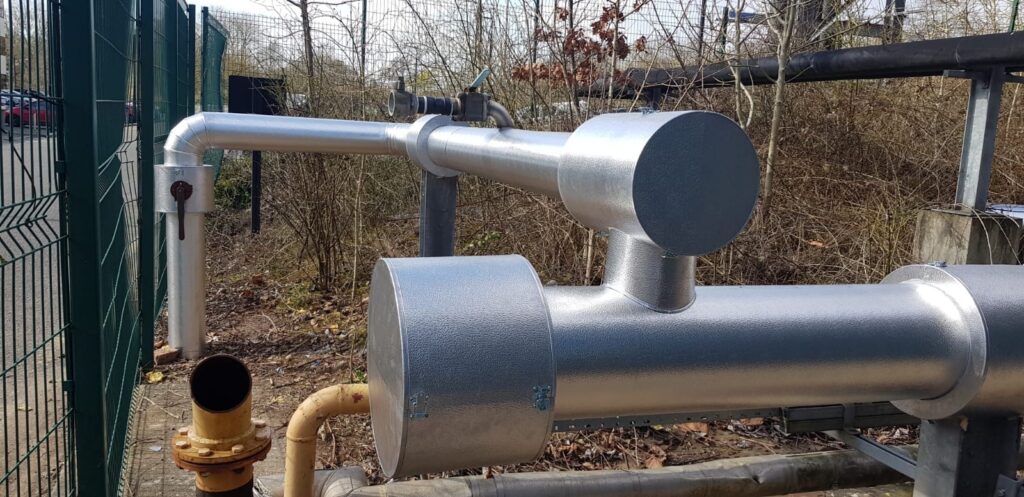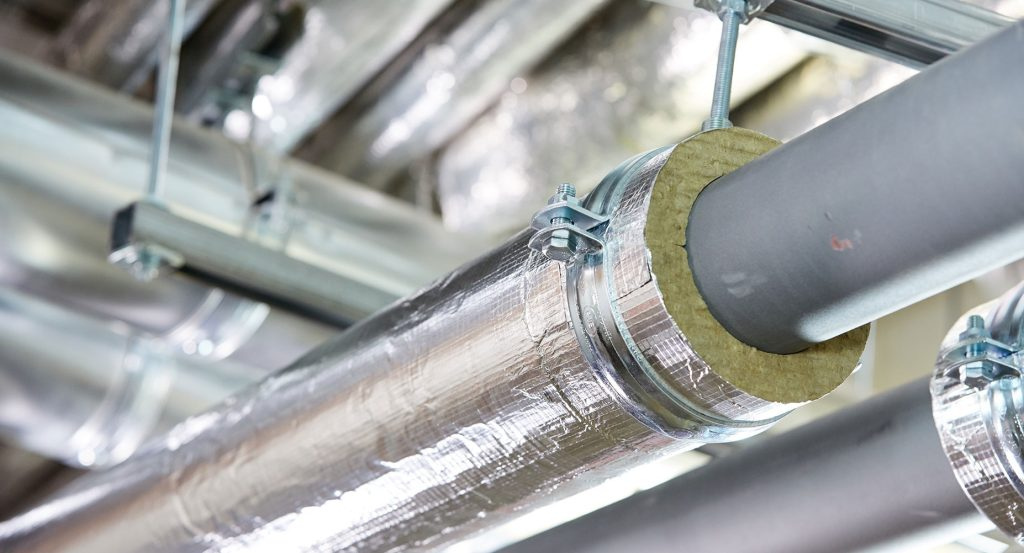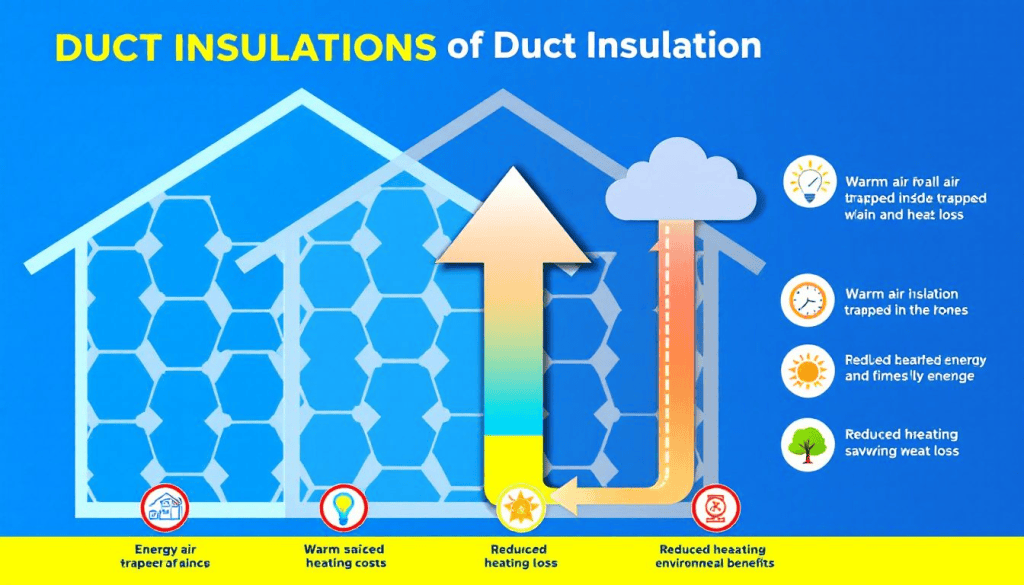Pipe Insulation Benefits And Why It’s Important
Pipe insulation involves wrapping pipes with material to reduce heat loss and regulate temperature. This process helps maintain water temperature, save energy, and protect pipes from freezing or condensation. In this article, we’ll explore the benefits of pipe insulation, what pipe insulation is, why it’s crucial for your plumbing system, and how to choose the right materials. Additionally, pipe insulation can provide acoustic insulation, reducing noise from fluid movement within pipes.
Key Takeaways
- Pipe insulation is essential for maintaining desired fluid temperatures, reducing heat loss, and enhancing energy efficiency in plumbing systems.
- Insulating both hot and cold water pipes can prevent issues such as freezing, condensation, and moisture-related problems, thereby ensuring a durable plumbing system.
- Selecting the appropriate insulation material based on specific needs and proper installation techniques is crucial for achieving optimal energy savings and performance.
- Ensuring proper coverage of the pipe surface during installation is important to achieve effective insulation.
Understanding Thermal Insulation
Pipe insulation refers to the process of applying a protective layer around pipes to maintain the desired fluid temperature. The primary purpose of insulating pipes is to ensure that the water retains its heat as it travels through the plumbing system, reaching your taps at the right temperature. This not only enhances comfort but also significantly reduces heat loss, leading to improved energy efficiency.
Proper insulation for hot water pipes maintains water temperature and minimises energy wastage. Pipe insulation creates a barrier that retains heat within the pipe, ensuring hot water reaches your faucet. This simple measure can significantly reduce your energy bills and improve the efficiency of your heating system. Mineral wool insulation, a type of insulation made from molten slag or rocks, offers excellent fire resistance and temperature performance, making it a valuable option for various applications.
Moreover, proper pipe insulation acts as a protective shield, enhancing the comfort of your living spaces. Consistent temperatures and reduced heat loss contribute to a more stable and comfortable indoor environment. This is especially important in homes and buildings where maintaining a consistent temperature is key to comfort and energy savings.
Both hot and cold water pipes should be insulated to prevent issues like freezing in colder climates. Cold water pipes can also benefit from insulation to prevent condensation, which can lead to moisture-related problems such as mould growth and pipe corrosion. Insulating all water pipes ensures a more efficient and durable plumbing system.
The Importance of Pipe Insulation in Preventing Heat Loss
Pipe insulation, also referred to as pipework insulation, is essential for maintaining an optimally functioning plumbing or heating system. A protective layer around pipes effectively regulates temperature, reduces heat loss, and prevents external damage. This is particularly important for hot water pipes, which need to retain heat to ensure energy efficiency and comfort. To maintain these benefits, it is advisable to install pipe insulation around your water pipes and use water pipe insulation as an additional measure.
Proper insulation plays a critical role in minimising energy consumption and improving cost efficiency. Insulating pipework reduces the energy needed to heat water, leading to significant savings on energy bills. Additionally, it helps maintain a consistent temperature throughout your plumbing system, reducing the strain on your heating equipment and prolonging its lifespan. Fiberglass pipe insulation is a common type used for hot-water pipes, HVAC ducts, and refrigeration lines, offering benefits such as high R-value and durability, though it requires careful handling due to potential safety concerns.
Pipe insulation also protects against extreme temperatures. In colder climates, insulation prevents pipes from freezing and bursting, avoiding extensive damage and costly repairs. Insulating pipes in warmer climates can help keep the water cool, preventing heat transfer and ensuring that your plumbing system operates efficiently year-round.
Key Benefits of Foam Insulation for Pipes
One of the primary benefits of pipe insulation is energy saving. Insulated water pipes help retain heat, reducing the amount of energy needed to maintain water at the desired temperature. This results in lower heating costs and decreased energy wastage, making it an eco-friendly and cost-effective investment. Retaining heat within the pipes significantly lowers energy bills and contributes to a greener planet.
In colder climates, unprotected pipes are at risk of freezing, which can lead to burst pipes and costly repairs. Well-insulated pipes prevent water from freezing during winter, ensuring an uninterrupted water supply and avoiding property damage. This simple preventive measure can save you from the headache and expense of dealing with frozen pipes.
Insulating pipes also play a key role in minimising heat loss and condensation, as it helps to reduce heat losses. Insulation ensures consistent heating throughout your home or business by maintaining the internal temperature of hot water pipes. Additionally, pipe insulation helps to prevent condensation build-up, which can lead to moisture-related issues such as mould growth and pipe corrosion. These benefits make it an essential component of any efficient plumbing system.
Whether it’s for a central heating system or industrial pipework, insulation optimises overall system performance. Insulated pipes reduce strain on boilers and heating systems, aiding temperature control with minimal energy expenditure. This leads to a longer lifespan for your heating and plumbing systems, reducing the need for frequent maintenance or replacements. Investing in pipe insulation is a smart way to enhance the efficiency and longevity of your systems.
Safety and protection are additional benefits of pipe insulation. Exposed pipes carrying hot water or steam can pose a safety hazard, especially in workplaces or homes with children. Pipework insulation creates a protective barrier, reducing the risk of burns or injuries from accidental contact. Insulation also protects pipes from external damage, helping them withstand harsh conditions and preventing costly leaks.
Noise reduction is another advantage, as insulation helps dampen the noise caused by water movement within the pipes.
Choosing the Right Pipe Insulation
The right insulation for your pipes depends on factors like the type of system, location, and temperature requirements. Choose insulation materials that are durable and effective for your specific needs. For example, fibreglass insulation is ideal for high-temperature applications, while foam insulation suits general residential use. The installation of pipe insulation can be performed DIY if proper tools and guidelines are followed.
Various insulation materials are available, each with its unique properties. Foam insulation is lightweight and easy to install, making it a popular choice for homeowners. Foam pipe insulation can be found in various forms, such as rigid boards, flexible tubes, preformed sections, or spray foam. Fibreglass pipe insulation offers excellent thermal resistance and is ideal for hot pipes and industrial applications. Fiberglass is one of the most common types of pipe insulation. Rubber pipe insulation is flexible and resistant to moisture, making it suitable for both hot and cold-water pipes. Rubber pipe insulation is typically used for cold water pipes, refrigeration lines, air conditioning ducts, and heating pipes. Mineral wool pipe insulation can be found in various forms, such as rigid boards, flexible blankets, preformed sections, or loose fill. Polyisocyanurate (PIR) pipe insulation is typically used for hot water pipes, steam pipes, HVAC ducts, and refrigeration lines. PIR pipe insulation is made from polyurethane that is modified with isocyanate to improve thermal and fire performance. Closed-cell rubber insulation provides a high level of thermal insulation and prevents condensation. Rockwool insulation is another effective option for improving energy efficiency. Phenolic pipe insulation can be found in various forms, such as rigid boards, flexible tubes, preformed sections, or self-sealing tapes.
Consider insulation thickness, pipe diameter, and ambient temperature when choosing pipe insulation. Thicker insulation provides better thermal resistance, while the diameter of the pipe will determine the size of the insulation needed. Ambient temperature is also crucial, as it affects the thermal conductivity of the insulation material. Sealing all seams and joints thoroughly prevents gaps that enable heat transfer. Attention should be paid to valves, elbows, and hangers to prevent air gaps. Vapor-barrier facings should be used when required to prevent moisture issues. Regular maintenance and proper installation can help pipe insulation last 15-25 years. Proper installation is crucial for insulation effectiveness, so follow manufactuit’sguidelines and best practices.
Thermal Clad offers high-quality pipe insulation solutions designed to meet both residential and commercial needs. Our insulation materials, known for their low thermal conductivity, are durable, effective, and tailored to provide long-term protection and energy savings. Whether insulating home water pipes or installing industrial-grade insulation for commercial applications, our expert team can help you choose the right solution.
Conclusion
Pipe insulation is a simple yet highly effective way to improve energy efficiency, protect pipework, and enhance the overall performance of your heating and plumbing systems. Whether you’re looking to insulate water pipes in your home or install industrial-grade insulation for commercial applications, investing in high-quality insulation ensures optimal results. The benefits of pipe insulation, from energy savings to safety and protection, make it an essential component of any efficient plumbing system.
For expert advice and premium insulation solutions, get in touch with Thermal Clad today and take the first step towards a more energy-efficient and protected property. Our team is ready to assist you in choosing the right insulation materials and ensuring proper installation for maximum effectiveness. Don’t wait any longer to enjoy the benefits of well-insulated pipes.
Summary
Pipe insulation offers numerous benefits that enhance the efficiency and safety of your plumbing and heating systems. By maintaining fluid temperature, reducing energy consumption, and preventing damage, pipe insulation proves to be a valuable investment for both residential and commercial properties. The right insulation can lead to significant energy savings, improved system performance, and a more comfortable living environment.
Investing in high-quality pipe insulation is a smart decision that pays off in the long run. Whether you’re dealing with hot or cold water pipes, choosing the right materials and ensuring proper installation is key to reaping the full benefits. Take the time to assess your insulation needs and consult with experts like Thermal Clad to make informed decisions that will enhance your property’s efficiency and protection.
Frequently Asked Questions
Expert Guides
Our goal at Thermal Clad is to not only provide our customers with the finest service possible but also to keep them informed about new products and industry trends.
Please feel free to check out some of our expert insulation guides below:
Commercial Building Services Insulation: Reducing Energy Loss, Carbon Emissions and Costs
In commercial buildings, a significant amount of energy loss occurs through mechanical and HVAC services rather than the building…
How to Prevent Condensation and Corrosion Under Insulation (CUI)
Corrosion Under Insulation (CUI) is a well-recognised issue in industrial environments and continues to be a cause of unplanned…
Sustainable Insulation: Reducing Carbon in Building Services
Sustainable insulation materials are an important part of reducing carbon emissions within modern building services. Mechanical and electrical systems…
What Is Trace Heating? A Complete Guide to Trace Heating Systems, Heating Cables, and Service Pipework Protection
Trace heating plays a crucial role in keeping industrial and commercial services operational in cold or fluctuating conditions. If…
BS 5422 Explained – Insulation Thickness Standards for Energy Efficiency & Compliance
At Thermal-Clad, we’re often asked how to make sure pipework insulation meets the latest standards while delivering the best…
Thermal Insulation Types for the Industrial Sector
Thermal insulation is essential in industrial construction, reducing energy consumption, improving workplace comfort, and protecting buildings and equipment from…
Cladding In Construction: What It Is And Its Purpose?
Cladding in construction refers to the process of covering insulated pipework, ducting, and vessels with a new layer of…
Pipe Insulation Benefits And Why It’s Important
Pipe insulation involves wrapping pipes with material to reduce heat loss and regulate temperature. This process helps maintain water…
Ductwork Insulation: Benefits & Guide
Duct insulation is essential for ensuring your HVAC systems operate efficiently by minimising temperature fluctuations during air transfer. It…
Heat Trace Cable: What Is It And How Does It Work?
Heat trace cables prevent pipes from freezing by generating heat. Curious about how heat trace cables work? This article…

